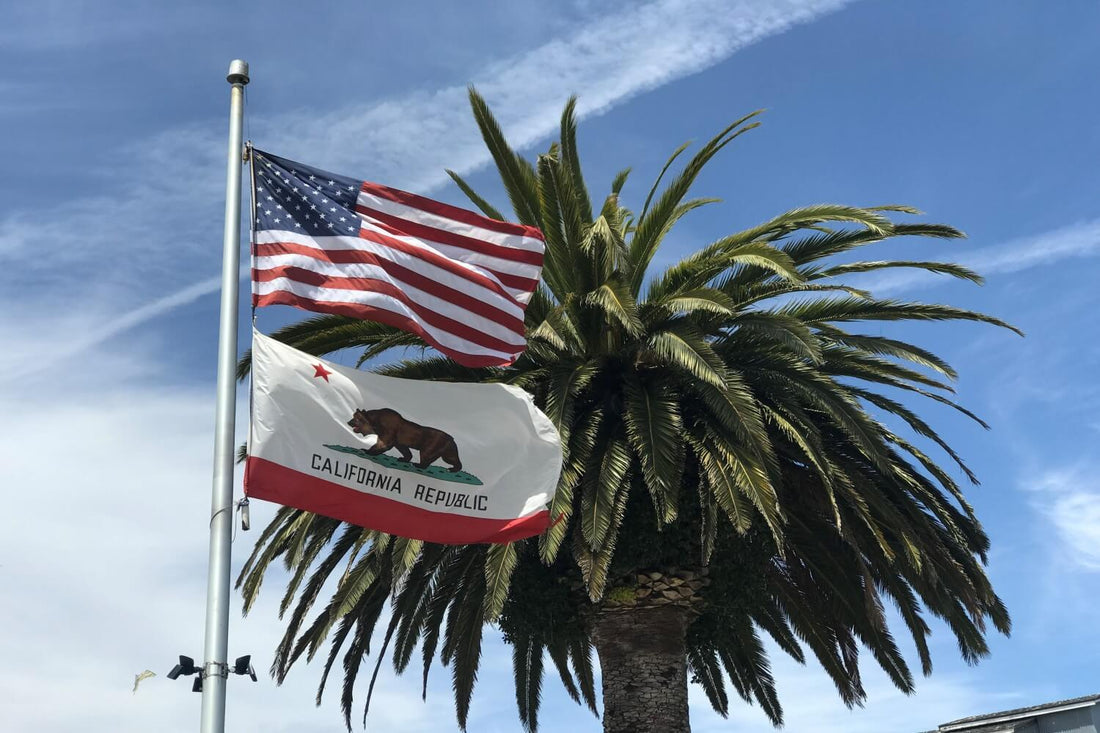California is commonly referred to as the Golden State. But if you want to enjoy our GOLD Kratom Capsules (or any other fine kratom products), you first need to understand the relationship between kratom and California law. Is kratom legal in California? It ultimately depends on where you’re buying.
Kratom and California Law
Let’s start with the big question: Is kratom legal in California? At the state level, the answer is yes. There are no laws in place that would restrict access to kratom products so long as the product is not adulterated with any non-kratom substances that are scheduled as controlled substances in California. You can legally buy kratom extract, powders, capsules, loose leaves, and just about any other form that’s available in the U.S.
Though some states continue to debate the legal status of kratom (and six states have gone so far as to ban it), California has never made such an effort. The law gets a bit more complicated, though, at the local level. Cities and counties have the right to impose their own local restrictions, and two prominent California communities have done just that.
Local Kratom Laws in California
Though kratom is legal in California at the state level, it’s illegal in two Southern California cities: San Diego and Oceanside. You cannot buy, possess, use, manufacture, process, or sell kratom in these cities.
San Diego

San Diego banned kratom in 2016, adding it to the city’s list of Schedule I Controlled Substances—even though it doesn’t meet the definition or bear any resemblance to the other substances it was classified alongside.
While there certainly are synthetic kratom products on the market, kratom in its natural form has no synthetic characteristics. It’s made from the leaves of the Mitragyna speciosa tree, a relative of the coffee plant. The leaves are typically harvested, dried, and ground into powder.
Oceanside
The Oceanside California kratom law took effect shortly after the San Diego ban. Oceanside is one of San Diego’s closest neighbors, located in the same county. The Oceanside City Council seemingly took its cue from San Diego when it voted to ban kratom alongside 94 other substances.
Oceanside city officials used roughly the same argument used by San Diego legislators. They also noted that kratom is listed as a substance of concern by the Drug Enforcement Administration (DEA). While this is true, the DEA has thus far taken no steps to restrict public access to kratom. It doesn’t appear likely that they will do so in the near future, either.
Implications of the Local California Kratom Bans
As of this writing, kratom is not legal in San Diego and Oceanside California. In 2020, county legislators almost went so far as to ban kratom across San Diego County, declaring kratom a public nuisance. However, the countywide ban never came to fruition.
Still, the San Diego and Oceanside bans create some undeniable complexity for kratom buyers in California. For example, if you live in a neighboring community like Chula Vista or Escondido, you have to be careful not to wander into San Diego with kratom in your vehicle or on your person.
And if you’re crossing into or out of Mexico by car and you want to bring your kratom with you (as kratom is legal in Mexico), you’ll want to avoid the San Ysidro and Otay Mesa border crossings. Both of these border crossings require you to travel through San Diego. You’ll need to use the Tecate border crossing, which is located in San Diego County but not San Diego proper.
Then there’s the issue of San Diego International Airport (SAN). It’s technically not illegal to bring kratom on an airplane, and as we’ve previously established, kratom is legal in California. However, if you’re flying into or out of San Diego Airport, you absolutely want to avoid bringing kratom in your carry-on or checked luggage—even if you’re just landing in San Diego to go somewhere else. You’ll be under the watchful eye of the Transportation Security Administration (TSA), and it’s not worth the risk.
Long story short: kratom is legal in California, but keep it out of San Diego and Oceanside.
Other Things to Know About California Kratom Law
For the 38 million Californians who live outside of Oceanside and San Diego, kratom is legal and easy to access. However, while kratom remains legal in California, there are still some other important things to know, particularly in relation to kratom regulation.
Neighboring states like Nevada and Arizona have implemented what’s known as the Kratom Consumer Protection Act (KCPA), a set of regulations which seek to make the kratom market safer. Common features of the Act include banning kratom with synthetic and non-kratom ingredients, imposing a minimum age requirement for kratom use, and requiring third-party lab testing for kratom products.
Although advocacy organizations like the American Kratom Association have been pushing to enact the KCPA in California, so far kratom remains unregulated in the state. This means, to put it simply, “buyer beware.” We recommend you buy kratom online from brands that are dedicated to providing third-party lab tested kratom. And you should always view the lab results to ensure that the kratom:
- Is 100% all-natural
- Contains the advertised alkaloid concentrations
- Is free of contaminants like E. coli, mold, and salmonella
At Royal Kratom, we take our commitment to high-quality kratom seriously. Our kratom is made from pure Mitragyna speciosa leaf with no synthetic ingredients or additives, and every batch is lab tested for purity and quality. Browse kratom powder for sale, kratom capsules for sale, and much more in our varied inventory, and discover the difference for yourself.

